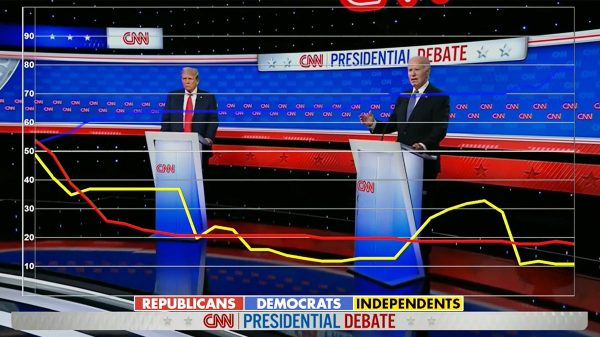Earlier this month, Argentina and Brazil announced that they would begin working to implement a common currency. The news shocked many economists, including Oliver Blanchard, former chief economist of the International Monetary Fund. Blanchard responded by tweeting: “This Is Insane.”
While neither country has a good track record in monetary affairs, the potential problems created by a common currency area are not immediately evident to many people.
Common currency areas are not necessarily bad or inherently unstable. Indeed, they offer many advantages, including reduced exchange-rate risk. The gold standard, for example, was a common currency area that promoted trade and financial integration among those countries that adhered to it. Whether these advantages justify the creation of a common currency area depends, in part, on the institutional context within which policymakers operate.
To understand how this context affects fiscal and monetary policy, consider the government’s budget constraint. Governments can finance additional spending by raising taxes, borrowing (future taxes), or creating money. Politicians face an uncomfortable tradeoff: channeling government spending to their constituents requires increasing current or future taxes, or resorting to inflationary finance, neither of which are likely to curry favor with voters.
From the politician’s perspective, the best tax is one paid by people other than his constituents. Suppose, for instance, that policymakers decide to finance an increase in government spending by printing money. If most people using this money are also voters, the effects of inflationary finance offset the benefit the voters receive from additional government spending. As a result, politicians have an incentive not to spend too much, or face the wrath of money-using voters upset by high inflation.
Suppose instead that half of those who use the currency are represented by the policymakers responsible for increasing government spending, while the other half who use the currency are not. Let’s call the first group Argentinians and the second group Brazilians. In this case, Argentine policymakers can opt to finance an increase in government spending on Argentinians by creating money, knowing that half of the expense will fall on Brazilian money users.
Since the Argentinian politician and those he represents only partially internalize the excess burden of the inflation tax, both the increase in government spending and the reliance on inflationary finance will be higher in this case than it was in the first case, where the Argentinian voters fully internalize the excess burden of inflationary finance. If the institutional context within which politicians make decisions looks more like the second case than the first, then a common currency area has the potential to result in higher inflation.
The problem does not stop there, however, since Brazilian politicians can play the same game. They can increase government spending on Brazilians financed by money creation, forcing Argentine money holders to shoulder half of the bill.
Turnabout is fair play. And politicians in both countries will have an incentive to turn around and do it again and again. As a result, the inflation rate will increase further. Ultimately, the inflation rate that emerges in this setting will be higher than it would be if both groups internalized a higher share of the excess burden of the inflation tax.
Why is such an outcome possible?
To answer this question, we need to think about the structure of political property rights. In the second scenario described above, no one owned the value of the money stock. As a result, no one was concerned with maintaining its value. In the jargon of economics, the value of the money stock in the second scenario was a common pool resource. Such resources are subject to what is popularly known as the tragedy of the commons. In extreme cases, this tragedy results in the total dissipation of the value of unowned resources.
So, what does all this talk about political property rights have to do with common currency areas?
Failing to structure the political property rights to account for the effect that independent fiscal decisions will have on inflationary finance will undermine the success of the common currency area. Efforts by the fiscal authorities participating in the monetary union to appropriate the value of the money stock on behalf of their constituents will drive inflation higher and thereby dissipate the value of the money stock. As the number of fiscal authorities increases, so, too, will the inflation rate. In short, there will be a tragedy of the monetary commons.
Why wasn’t the gold standard susceptible to this problem?
Under the classical gold standard, no entity possessed centralized control over the money supply. The money supply was ultimately controlled by the competitive mining and minting of coins. Consequently, countries on the gold standard could not pressure the monetary authorities to finance additional government spending by printing money. Modern-day fiat regimes, by contrast, centralize control over the money supply and must find ways of preventing politicians and their constituents from misusing and abusing that control.
While relatively well-functioning governments have managed to find mechanisms that mitigate the problem, it seems unlikely that Argentina and Brazil will be able to prevent a tragedy of the monetary commons given their history of money and fiscal mischief. In my view, Argentina and Brazil would be better served by dollarization. With dollarization, both countries would enjoy the benefits of a common currency area without the ability of either country to impose inflation taxes on each other’s citizens.


































